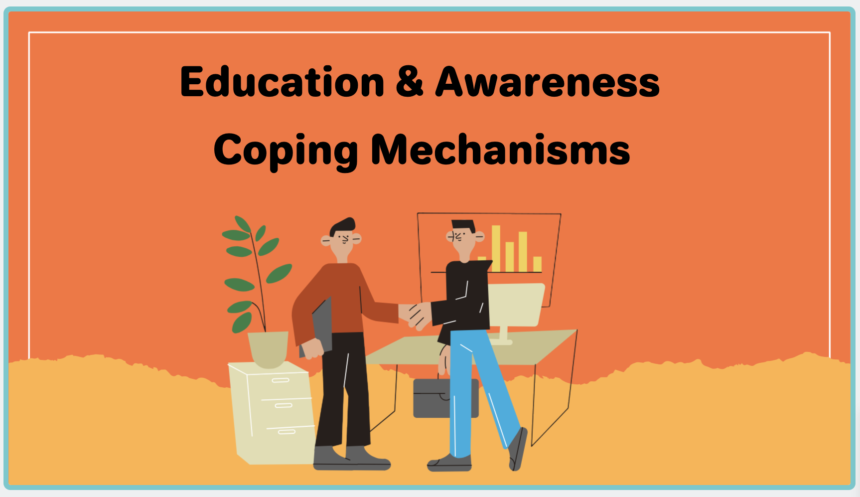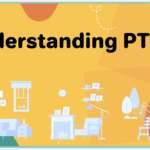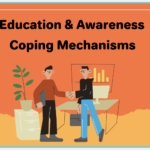Post-Traumatic Stress Disorder (PTSD) significantly affects various aspects of a veteran’s performance in high-stress work environments. Veterans experiencing PTSD may struggle with concentration, often finding it challenging to remain focused on tasks. This difficulty can stem from intrusive memories or flashbacks that disrupt their attention and ability to process information.
Post-Traumatic Stress Disorder (PTSD) is a mental health condition that is triggered by experiencing or witnessing a traumatic event. For UK military veterans, the prevalence of PTSD is notably significant due to their exposure to combat situations, life-threatening scenarios, and the rigorous demands of military service. These experiences can leave lasting psychological scars, impacting both personal lives and professional capabilities.
The causes of PTSD in military veterans are closely associated with the intense and often violent nature of combat. Traumatic events, such as the loss of comrades, direct encounters with violence, and exposure to life-threatening situations, contribute substantially to the onset of PTSD. Other stressors, including separation from family and the transition to civilian life, can exacerbate these symptoms and complicate their recovery process.
Symptoms of PTSD are varied and may include flashbacks, nightmares, severe anxiety, and uncontrollable thoughts about the traumatic event. Veterans may also exhibit symptoms of depression, irritability, and emotional numbness, often leading to difficulties in social interactions and maintaining personal relationships. As these symptoms manifest, they can hinder an individual’s ability to perform effectively in a work environment, contributing to job-related stress and complications.
Research indicates that a significant number of UK military veterans are affected by PTSD. Studies suggest that around 10% of veterans experience PTSD after completing their service. The psychological ramifications of this disorder can create additional barriers to seeking employment or managing workplace relationships, further isolating individuals who are already struggling with their mental health. It is essential to understand how PTSD affects veterans to foster environments that support their mental well-being and facilitate their transition into civilian life.
The Impact of PTSD on Workplace Performance
Post-Traumatic Stress Disorder (PTSD) significantly affects various aspects of a veteran’s performance in high-stress work environments. Veterans experiencing PTSD may struggle with concentration, often finding it challenging to remain focused on tasks. This difficulty can stem from intrusive memories or flashbacks that disrupt their attention and ability to process information. As a result, productivity can diminish, leading to missed deadlines and incomplete work, which can further exacerbate feelings of inadequacy in their professional roles.
Another critical symptom of PTSD is the challenge of emotional regulation. Veterans may experience heightened emotional responses to stressors that would typically be manageable in a typical workspace. For instance, a minor critique from a supervisor could trigger an unexpected emotional reaction, leading to perceptions of hostility or excessive withdrawal. This volatility can create an environment of misunderstanding among colleagues, as peers may misinterpret these responses as personal or unprofessional, further isolating the individual and impacting team dynamics.
Moreover, PTSD often affects social interactions within the workplace. Veterans may exhibit avoidance behaviors, opting to disengage from social situations to shield themselves from potential triggers. This withdrawal can lead to misunderstandings and conflicts with coworkers, as peers might view the behavior as aloofness or lack of interest in teamwork. The inability to connect with colleagues can hinder collaboration and reduce overall workplace morale.
Ultimately, the impact of PTSD on a veteran’s performance in high-stress environments is multifaceted, affecting concentration, emotional stability, and interpersonal relationships. Addressing these challenges is crucial for fostering a supportive atmosphere that not only facilitates veterans’ recovery but also enhances overall workplace productivity and cohesion.
Recognising Triggers and Stressors
For military veterans experiencing post-traumatic stress disorder (PTSD), recognising triggers and stressors in the workplace can be a fundamental aspect of managing their symptoms effectively. Triggers can originate from many sources, including specific environments, sounds, or interactions that evoke memories of past traumatic experiences. Understanding these triggers allows veterans to advocate for themselves and create a working environment that feels safer and more conducive to their well-being.
Common workplace scenarios that may serve as potential stressors include high-pressure deadlines, sudden loud noises, or even the presence of certain individuals who remind the veteran of their traumatic experiences. Open office environments can sometimes amplify these stressors, as the continuous hustle and bustle can intensify feelings of anxiety or hyper-vigilance. Additionally, interactions within hierarchical structures may evoke feelings of powerlessness, mirroring the trauma experienced during military service.
To effectively manage these workplace challenges, veterans are encouraged to develop coping mechanisms tailored to their specific triggers. A proactive approach could involve identifying personal triggers through journaling or reflecting on experiences that induce stress. Once identified, veterans can work on strategies such as deep-breathing exercises, mindfulness, or seeking quiet spaces when feeling overwhelmed. By creating a personalized toolkit of coping strategies, veterans can foster resilience amidst the pressures of their work environment.
Moreover, establishing a supportive network within the workplace can significantly alleviate stress. This could encompass communicating with colleagues about specific triggers or involving a trusted supervisor in discussions about creating accommodations. Awareness and understanding from peers not only help create a more inclusive environment but also allow veterans to focus on their responsibilities without the burden of unrecognised stressors.
Coping Strategies for Managing PTSD
Veterans coping with post-traumatic stress disorder (PTSD) often face challenges in high-stress work environments. However, implementing effective coping strategies is crucial in mitigating symptoms and fostering a healthier workplace experience. One immediate technique that veterans can draw upon is breathing exercises. These exercises, such as deep belly breathing or the 4-7-8 method, can help regulate anxiety and promote relaxation in stressful situations. Taking a few moments to focus on one’s breath can significantly reduce the intensity of PTSD symptoms during a busy workday.
In addition to short-term coping tools, long-term approaches play an essential role in managing PTSD effectively. Regular therapy sessions, whether through cognitive behavioural therapy (CBT) or eye movement desensitization and reprocessing (EMDR), provide a structured environment for veterans to address their trauma and develop coping mechanisms. Establishing a consistent schedule for therapy can ensure ongoing support and progression towards recovery.
Another vital component of managing PTSD in the workplace is physical fitness. Engaging in regular exercise has been shown to improve mental health and reduce anxiety levels. Forming a habit of incorporating physical activities, such as jogging, cycling, or participating in team sports, can serve as an effective outlet for stress and promote overall well-being.
Moreover, involvement in peer support groups offers veterans valuable opportunities to connect with others experiencing similar challenges. These groups foster a sense of community and understanding, allowing individuals to share insights and learn from each other’s experiences. This collective approach can also enhance emotional resilience, as participants recognize that they are not alone in their struggles.
By incorporating these practical techniques into daily routines, veterans can cultivate effective coping strategies that alleviate the symptoms of PTSD, facilitating a smoother transition into their work environments.
The Importance of Communication in the Workplace
Open communication is pivotal in any workplace; however, it holds particular significance for veterans managing PTSD in high-stress environments. Effective dialogue allows veterans to express their needs, limitations, and concerns, fostering an atmosphere that prioritizes understanding and collaboration among colleagues and supervisors. By creating a culture of openness, organizations can enhance the well-being and productivity of their workforce, particularly for those who may face unique challenges due to their military experiences.
Veterans may feel hesitant to discuss their PTSD, fearing stigma or misunderstandings. It is crucial for employers to establish an environment where such conversations can occur without fear of judgment. Encouragement from leadership to share personal experiences and mental health challenges can significantly alleviate this discomfort. Simple strategies can facilitate transparent communication, such as regular one-on-one check-ins with managers, anonymous feedback mechanisms, or peer support groups that allow veterans to connect with others who have faced similar experiences. These methods not only help veterans voice their needs but also cultivate trust within the team.
Moreover, it is beneficial for workplaces to offer training for all employees on how to support colleagues living with PTSD. This training can educate staff on the symptoms and effects of PTSD, promoting empathy and understanding. Additionally, implementing clear policies related to mental health, such as flexible working conditions or adjustments during high-stress project periods, demonstrates an organization’s commitment to promoting wellness.
Ultimately, a commitment to open communication can lead to a more cohesive and resilient work environment. By valuing the voices of veterans and encouraging dialogue about mental health, organizations can help manage PTSD effectively, ensuring that all employees thrive in their roles, regardless of their backgrounds.
Utilising Workplace Resources and Support Systems
For UK military veterans transitioning into civilian life, navigating high-stress work environments can be challenging, particularly for those coping with post-traumatic stress disorder (PTSD). One of the key strategies to aid in managing these challenges is the effective utilization of workplace resources and support systems. Many employers have recognized the importance of mental health, incorporating various programs to assist employees in managing stress and related conditions.
Employee Assistance Programs (EAPs) are among the primary resources available. These confidential services often provide free access to trained counsellors and various resources aimed at aiding workers facing personal or workplace challenges. Veterans can leverage these programs not only for immediate mental health support but also to access additional resources such as legal advice and financial guidance, which can alleviate stressors that contribute to their condition.
Additionally, mental health professionals, including psychologists or therapists, are frequently available through workplace health schemes. They can offer tailored support and coping strategies specifically designed for military veterans dealing with PTSD. It is crucial for veterans to feel empowered to seek out these professionals, as mental health is an integral aspect of overall well-being.
Furthermore, organizational policies within UK workplaces often outline clear frameworks for mental health support, which might include flexible working options, mental health days, and peer support networks. Veterans are encouraged to familiarize themselves with these policies as they provide essential guidelines on how to receive assistance. Knowing how to access these resources and the types of support available can significantly influence a veteran’s ability to thrive in their work environment. Building a supportive network within the workplace not only enhances job performance but also fosters a sense of belonging and stability, which are vital for managing PTSD.
Seeking Professional Help: When and How
For many individuals, especially military veterans experiencing post-traumatic stress disorder (PTSD), navigating the complexities of mental health can be daunting. Recognizing when to seek professional help is a pivotal step toward healing. Veterans should consider reaching out for assistance if they notice persistent symptoms such as flashbacks, severe anxiety, mood swings, or a general feeling of being overwhelmed. These symptoms can severely hinder daily functioning, particularly in high-stress work environments.
In the UK, a variety of mental health services are available to veterans, tailored specifically to their experiences and needs. The National Health Service (NHS) provides access to a range of mental health support, including cognitive behavioural therapy (CBT) and eye movement desensitization and reprocessing (EMDR). The Ministry of Defence also operates programs that connect veterans with suitable therapists and support groups. Initiating the process can often begin with a visit to a General Practitioner (GP), who can offer advice and referrals to specialized services.
Therapy plays a crucial role in managing PTSD and can facilitate significant improvements in emotional health and workplace performance. Various types of therapies can be beneficial, such as trauma-focused therapy, which specifically addresses traumatic memories, and group therapy, which fosters a sense of community among those with similar experiences. These therapeutic approaches not only aid in alleviating symptoms but also equip veterans with coping strategies to manage stressors more effectively in their work settings.
Veterans should be encouraged to view seeking help as a step towards empowerment rather than a sign of weakness. Building awareness around mental health resources and understanding the range of therapeutic options available is essential for those aiming to thrive in both their personal and professional lives.
Finding a Work-Life Balance
Achieving a sustainable work-life balance is crucial for UK military veterans managing post-traumatic stress disorder (PTSD), especially in high-stress work environments. Striking this balance allows veterans to fulfill work responsibilities while also tending to their emotional and physical well-being. This can be particularly challenging for those who are accustomed to high-octane military settings, which often leave little room for personal time or self-care.
Effective time management is an essential tool in this endeavor. Veterans may benefit from establishing a structured daily routine that allocates specific blocks of time for work duties, personal activities, and relaxation. Using planners or digital apps can help in mapping out daily tasks, ensuring that professional obligations do not encroach on essential personal time. By delineating periods for work and leisure, individuals can foster a clearer boundary that helps in reducing stress and anxiety.
Setting boundaries is another critical aspect of maintaining a work-life balance. Veterans should feel empowered to communicate their needs to colleagues and supervisors. This might include negotiating flexible work hours or requesting support for managing workload. It is important to understand that taking time for oneself does not equate to weakness; rather, it is a strong step towards sustaining productivity and mental health.
Incorporating self-care practices into daily routines is equally vital. This can range from engaging in physical activities and mindfulness practices to participating in hobbies that bring joy. Simple acts such as dedicating time to read, walk, or socialize can significantly uplift mood and mitigate stress. When veterans prioritize self-care, they not only enhance their resilience against PTSD but also improve their overall quality of life, fulfilling both professional aspirations and personal well-being. Ultimately, finding a work-life balance is both a journey and a crucial strategy for managing the complexities of PTSD in demanding environments.
Real-Life Stories: Success in the Face of PTSD
Many UK military veterans have faced the daunting challenge of managing PTSD in high-stress work environments. Their personal journeys serve as powerful reminders of resilience and the potential for recovery. One such veteran, Martin, found solace in a supportive workplace that understood the unique struggles associated with PTSD. Upon his return to civilian life, Martin was uncertain about re-entering the workforce. However, he secured a position in a veteran-friendly organization where open discussions about mental health were not only welcomed but encouraged. After sharing his experiences with colleagues, he discovered that many shared similar stories, leading to a profound sense of community.
Another inspiring story is that of Sarah, a former combat medic who experienced severe anxiety and flashbacks while working in a high-pressure medical facility. She utilized various therapeutic techniques, including cognitive behavioral therapy (CBT) and mindfulness practices, to manage her symptoms. Gradually, she began to apply these strategies at work, creating a personal toolkit for navigating stress-triggering situations. Sarah has since become an advocate for mental health in the workplace, leading workshops to educate others on coping mechanisms for PTSD and emphasizing the importance of a supportive work environment.
Additionally, Liam’s journey highlights the power of peer support. After leaving the military, he struggled to find his footing in a corporate job that intensified his PTSD symptoms. However, through a veteran mentorship program, Liam connected with others who had navigated similar challenges. Their shared insights inspired him to practice self-care routines and gradually take on new responsibilities. This collective support not only fostered his emotional healing but also boosted his confidence in the workplace.
These real-life stories illustrate that while navigating PTSD can be incredibly challenging, with the right support systems and coping mechanisms, UK military veterans can thrive in their careers. Their triumphs offer hope and motivation for others facing similar challenges, demonstrating that success is attainable even in high-stress environments.






